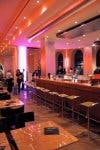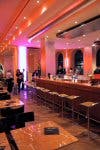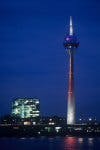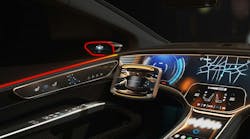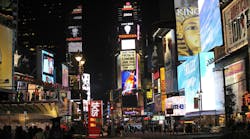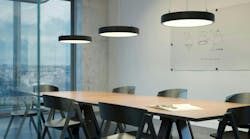Hotel Anna
Opened in November 2002, the lighting solution has required only one service since its installation - due to the disconnection of a cable during cleaning. This has reduced maintenance costs to almost zero, while using only 10 per cent of the energy required for the previous system.
Harald Spilker, sales and marketing manager of Bocom, said: "Creatively we were able to achieve far greater control and dynamism over the lighting solution, while the minimal maintenance and on-going cost savings provide the hotel with a high-performance, cost-effective installation."
Rhein Tower
The project went live in February 2003 and since this date has operated without any problems. It is still connected to one of Bocom's computers, allowing Bocom technicians to operate special lighting programmes that support one-off events in the city. The lights are currently estimated to be saving Dusseldorf 85% in energy costs per year compared with the previous approach.
